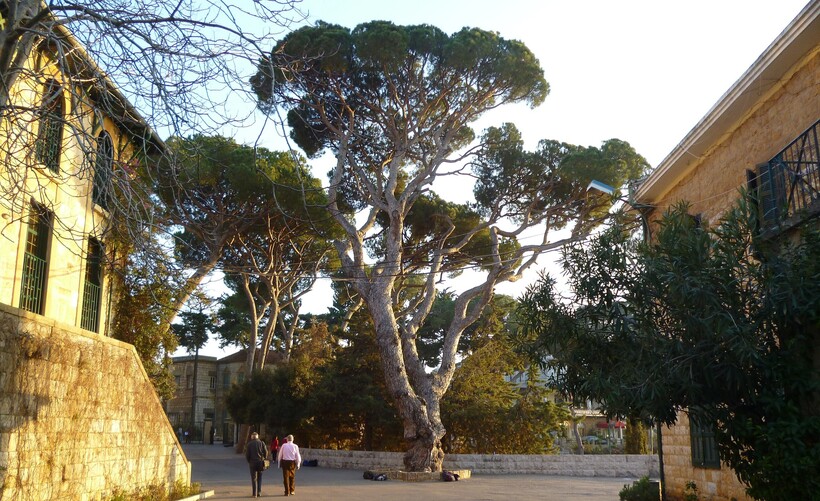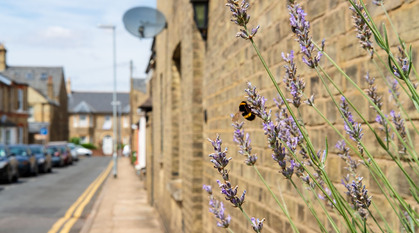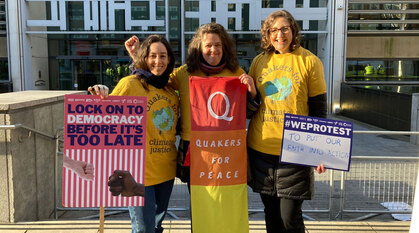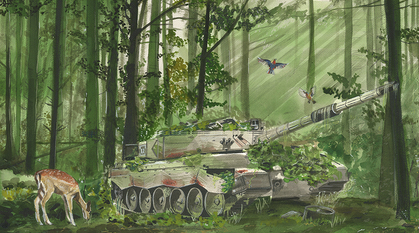A path to a better future: David Gray writes from Brummana High School in Lebanon
"Our students go to sleep to the sound of explosions and wake to the constant and nerve-wracking buzzing of drones in the morning sky, but nothing will stop them getting to school."

Lebanon is in a dilapidated state today, as indeed it has been for several years. It has suffered from a series of catastrophes: the overthrow of its government in 2019, the Beirut explosion of 2020, and the overwhelming economic collapse of 2019. This continues until today with rates of inflation still running at 190% and capital controls in the banks which have seen many people lose their entire life savings and, if they had them, their occupational pensions reduced to 5% of their actual value. For us in Lebanon the pandemic and subsequent lockdown were just another event but perhaps had less impact and preserved the peace in a way which would not be understood in the West.
The war has captured the public imagination in the West because of its drama and the immediate and tragic effect it has had on many people here, but in reality, while it is devastating and very frightening, and enormously damaging to Lebanon, it simply wearies many of the Lebanese who have seen it all before, shrug their shoulders, and get on with life with a resilience that is difficult to imagine. I do admire them. There is both a toughness and warmth of spirit inherent in the people which those in the 'first world' would do well to learn from.
Brummana High School has an important part to play in combatting the war peacefully. We have lost eight days of school since the beginning of September, but we were the first school in the country to go online after the initial days of polemic interruptions and one of the first to return all students to the campus, in spite of the threats to our existence.
"Nothing will stop them getting to school"
This week we had 92% attendance in a school of 1270 and for the most part we are operating entirely normally delivering three academic programmes and with our extracurricular programme operating after school every day. The remaining 8% who have either fled abroad or live in areas from which the trip to school is too dangerous follow lessons online. We are now operating on Saturday mornings too to catch up on the time lost to date, running tests which would otherwise have been held during the working week, thereby allowing more time for teaching and learning from Monday until Friday.
Only 40% of children in Lebanon have the luxury of going to school in these conditions so those who do must make the most of their opportunity. Our students go to sleep to the sound of explosions and wake to the constant and nerve-wracking buzzing of drones in the morning sky, but nothing will stop them getting to school. It remains a haven of peace, normality, regular work routines and the joyful interaction of young people. It is our act of defiance against the war.
It is worth noting that while our counsellors were inundated with children and with staff at the start of the war shocked by bombing, frightened by the imminent dangers or anxious about what the next day or hour might hold, these visits have now dwindled to a trickle. School provides hope, continuity, constancy and a sense of purpose which both distracts the mind and focuses it on the life to come after the war is over.
"A greater sense of unity and solidarity"
Our daily lives are taken up with work for the children. In the six years I have been at Brummana there is a greater sense of unity and solidarity and the sense that every minute counts than at any time since I have been here. We know that the potential for further disruption to school life is high, so we must make the most of the time we have now.
The children are well aware of their good fortune; there are a couple of thousand displaced people in Brummana alone who have fled from the southern suburbs of Beirut and from the south of the country. They are housed in empty buildings or government-controlled schools. They have nothing: no homes, limited food supplies and only the clothes they stand in. Our students and parents and teachers have gathered mattresses, blankets, bedding, clothes, food and other basic necessities in vast quantities, and have gone in school buses to distribute these to the displaced in seven towns and villages in the Metn area where people are taking shelter.
As I write there is a thunderstorm raging outside, the first of the winter, and the rain is pouring down. In normal times this is a welcome and much needed sight after six months of dry weather, but today one can only feel a creeping sense of dread for those without protection from the elements. Our work for the displaced will carry on.
The path to a better future
Our Quakerly values of respect for self and others, tolerance, and peaceful resolution, have never been more relevant or applicable. Day by day we try and encourage our students to ensure that we all live by them. This is the path to a better future for which the students of Brummana will one day be responsible. We must not fail them, and we shall not give up.
Financially the school is managing but we have substantial worries on the horizon since parents, afraid of what might come next, have stopped paying tuition, our principal source of income, saving their cash for emergencies. The result is that as the money dries up we are at risk of not being able to pay our staff or afford essential educational resources. Whatever Friends can donate would be welcome to ward off our troubles and to preserve this beacon of hope which is Brummana High School in the midst of an otherwise bleak landscape.
From the UK, donations can be made via the Quaker International Education Trust, the Quaker body which, with the Board of Governors, is responsible for the stewardship of BHS.


